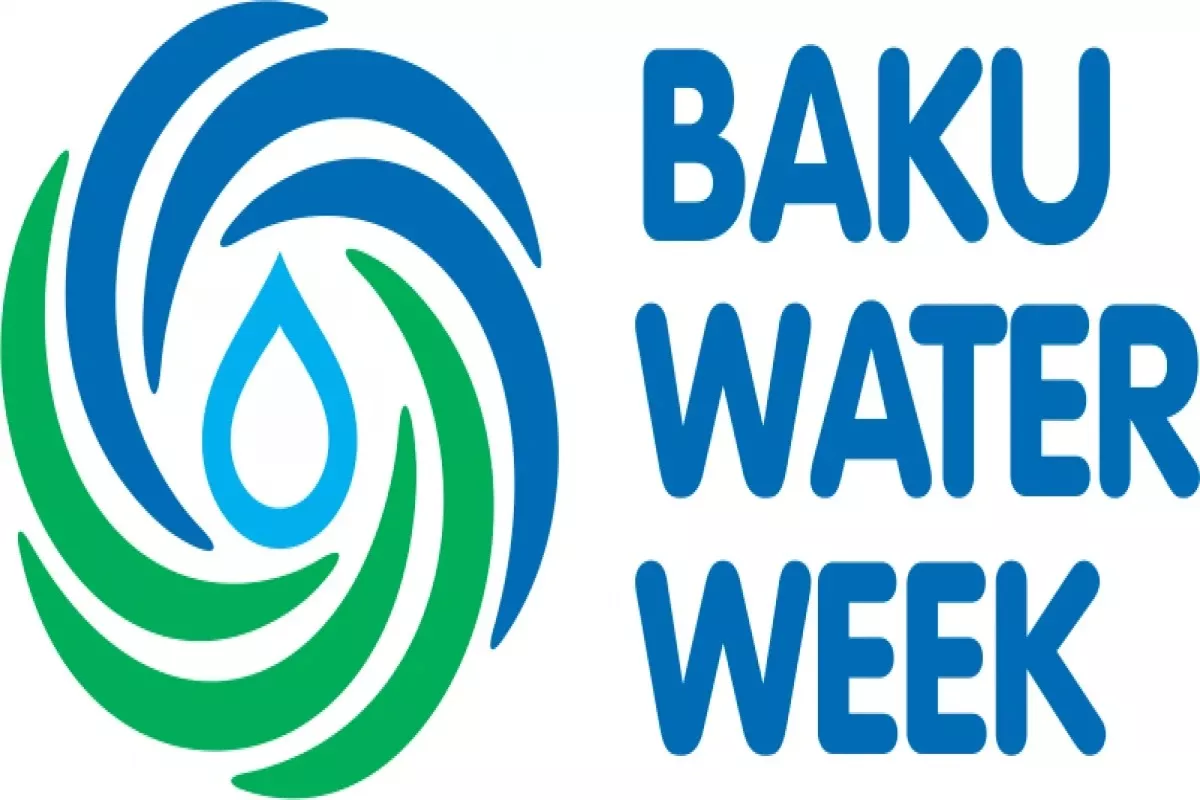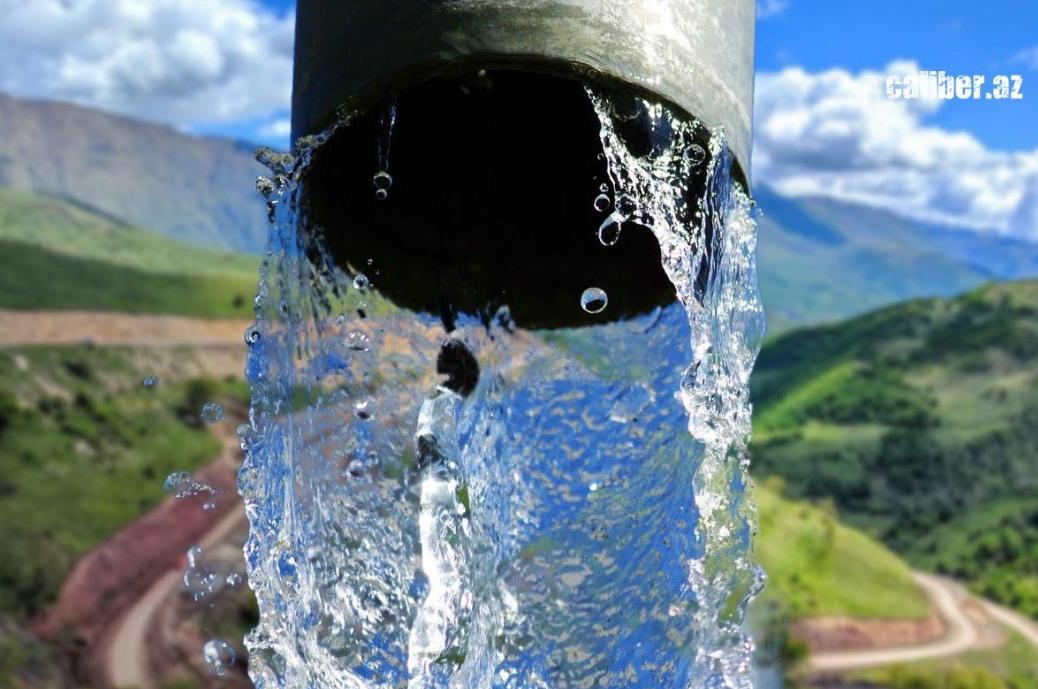Baku Water Week 2025: from innovation to implementation Water strategy in action
Global climate changes leading to freshwater shortages have become an increasingly pressing issue for Azerbaijan in recent years. In response, the Azerbaijani president approved a National Strategy for the Efficient Use of Water Resources last year. Key initiatives under this strategy include the construction of reservoirs and irrigation canals in the Karabakh region, the development of a seawater desalination plant, wastewater and rainwater treatment projects, and the deployment of water-saving irrigation systems, among others.
Discussions on the nation’s water agenda are now underway at the Baku Expo Center, where the second international exhibition and conference on water management is being held as part of Baku Water Week 2025, running from 10 to 12 September.

Over the past decade, negative climate changes have accelerated desertification across the South Caucasus. Prolonged droughts are becoming increasingly frequent, while glaciers in the Greater and Lesser Caucasus Mountains are melting at a faster rate, sharply reducing the flow of mountain rivers. Water levels in the region’s main transboundary rivers—the Kura, Aras, and Samur—have also declined due to excessive withdrawals for irrigation and dam construction in neighbouring countries. Similar reductions are observed in other major rivers, including the Rioni, Alazani, and Aragvi.
In Azerbaijan alone, water balance indicators have fallen by at least 15% over the past 20 years. Forecasts by experts from the Food and Agriculture Organisation of the United Nations (FAO) are sobering: Azerbaijan is among the 20 countries worldwide facing the most severe shortage of irrigation water. Environmental specialists warn that if desertification continues to accelerate, the country’s freshwater reserves could shrink by an additional 20% by 2050.
In response, and under the initiative of the president, Azerbaijan is implementing a series of measures to mitigate the impacts of climate change and the adverse effects of human activity, particularly in agriculture. The National Strategy for the Efficient Use of Water Resources, covering 2024–2040, outlines plans to introduce innovations in water management, prevent water pollution, and modernise irrigation systems—including concreting main canals and applying polymer coatings in distribution channels.
The strategy also aims to accelerate the adoption of water-saving irrigation technologies, such as pivot, aerosol, and micro-spray systems, across agricultural enterprises nationwide. In addition, electronic monitoring systems will be deployed to track and optimise the use of water resources.
A key focus of the strategy is the management and use of water resources in the Karabakh and East Zangezur economic regions. Over the coming years, four large reservoirs will be constructed, and with the expansion of water supply infrastructure, access to drinking water in the region is expected to reach 85%. Further plans include the construction of nine additional reservoirs between 2027 and 2030, followed by 13 more between 2030 and 2040.
Recently, the Khachinchay Reservoir was inaugurated in the Aghdam district, while the Kondelenchay and Zabukhchay reservoirs are currently under construction. Upcoming projects include the Hakarichay and Bargushadchay reservoirs, along with their associated canals. Last year, agreements were signed with the Islamic Development Bank (IsDB) to finance the construction of a major irrigation canal from the Giz Galasi Reservoir.

Since April of last year, work has been underway on the reconstruction of the 122-kilometre Upper Shirvan irrigation canal. Following modernisation, its length will increase by an additional 200 km, approximately 346 million cubic metres of water losses will be prevented, and 230,000 hectares of land will be supplied with irrigation. Another major project, the Karabakh Canal, will provide irrigation to 115,000 hectares across nine districts of the country. Notably, in 2023, the Head of State initiated a pilot project in the Absheron district for the treatment and reuse of wastewater discharged from the Hovsan Aeration Facility into the Caspian Sea.
These and other initiatives aimed at modernising Azerbaijan’s water supply and irrigation systems were highlighted across numerous exhibition stands at the Water Management exhibition-conference. Around 70 companies and delegations from countries including Azerbaijan, Austria, Belarus, the United Kingdom, Hungary, Germany, India, Israel, Saudi Arabia, Serbia, Singapore, the United States, Türkiye, Switzerland, and Sweden are participating in Baku Water Week. The event’s general sponsor is ACWA Power, one of Saudi Arabia’s leading companies in energy and water technologies.
Among the week’s highlights is the 2nd International Conference for Water Management, featuring over 40 speakers from 10 countries. The programme includes a plenary session titled “Leadership in Water Governance: Regional and Global Perspectives”, as well as panel discussions on “Water Strategies: Infrastructure and Digitalisation”, “Innovative Approaches to Alternative Water Resources Management”, “Water Diplomacy: Cooperation Beyond Borders” and “Water Sustainability Through Science and Innovations”.
Following the conference, a ceremony will be held to award the winning team of the Hackathon competition. In addition, four panel discussions will take place during the week as part of the 6th Caspian Water Innovation Forum, under the motto “Adding Value to Water.”
Among the key outcomes of Baku Water Week was the presentation of pilot projects on Caspian Sea desalination, innovative rainwater harvesting technologies, and wastewater treatment and reuse. Notably, during the forum’s opening ceremony, it was announced that Azerbaijan will conduct research in three phases from 2025 to 2027 on the development of artificial rain technologies. Additionally, a pilot project on extracting water from air is scheduled for 2026–2027.
By the end of this year, studies and mapping of rivers and areas at risk of flooding are planned. In 2026, coastal protective dams will be constructed in high-risk zones, followed in 2027 by measures to mitigate the impact of floods and flash floods in these areas. Between 2025 and 2027, restoration and reconstruction of kahriz systems—traditional underground water networks in Azerbaijani towns and villages—are also planned; to date, 124 kahrizes across 12 regions have been inspected.
“I am confident that the panel discussions, presentations, and exchange of ideas this week will play an important role in achieving the goals of our National Water Strategy, fostering the development of new ideas and strengthening international cooperation,” said Zaur Mikayilov, Chairman of the Azerbaijan State Water Resources Agency (ASWRA), on the eve of the forum. “I am convinced that Baku Water Week will provide not only government bodies, but also the private sector and specialists with the opportunity to find innovative solutions to problems based on new ideas. The forum will contribute to the creation of new initiatives, strengthen business ties, and enhance the efficiency of water resource management in our country.”

Furthermore, on the sidelines of Baku Water Week, an Energy Efficiency Agreement and a Memorandum of Understanding were signed between ASWRA and SOCAR Green. Another key outcome of the forum includes the planned signing of a public-private partnership agreement between ASWRA and ACWA Power, as well as a Memorandum of Understanding between the Saudi partner and the Azerbaijan Scientific Research Institute of Water Management and Melioration.
To enhance the country’s water management capacity, ACWA Power, in cooperation with the Turkish company IC İçtaş İnşaat, is implementing a project to build a seawater desalination plant in the Sumgayit Industrial Park. The facility will have a daily capacity of 300,000 cubic metres of water. The investment will be carried out by a consortium, with construction scheduled to take 2.5 years. The project is planned for 27.5 years, after which management of the plant will be transferred to ASWRA.








